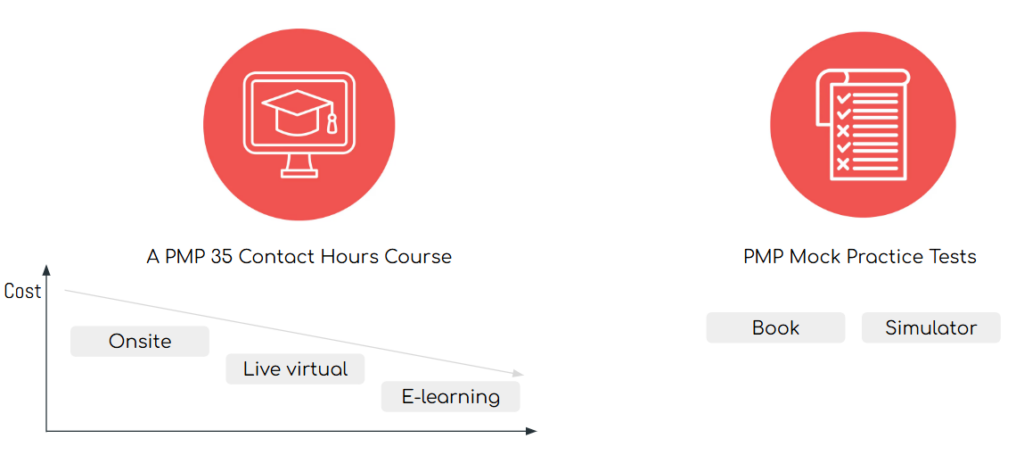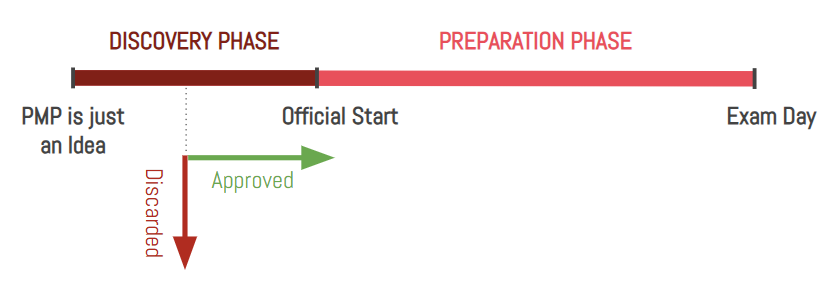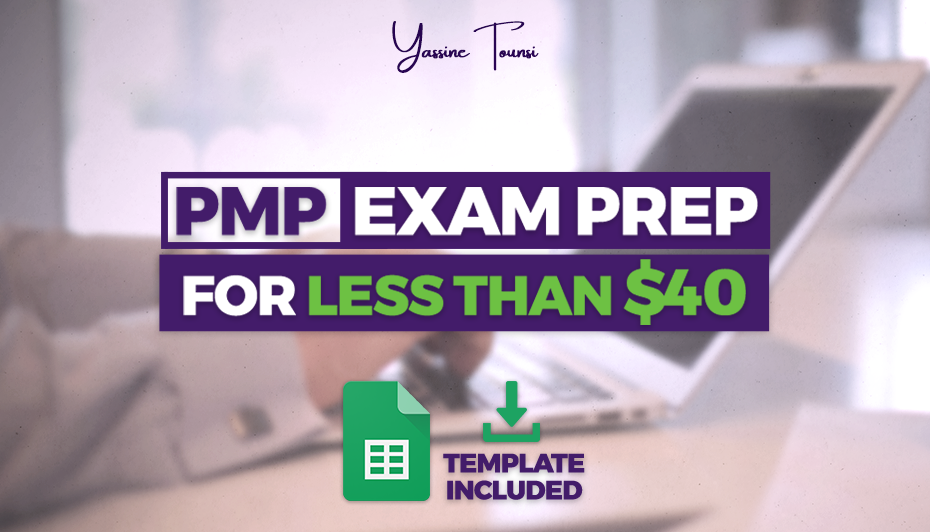Earning the Project Management Professional (PMP) Certification is a significant milestone for any professional. To achieve the PMP credential, you need a structured plan that addresses the prerequisites, study materials, and a realistic preparation schedule. Here’s a comprehensive guide to help you successfully plan for and obtain your PMP certification in 1 to 6 months, with less than $40.
PMP Certification Prerequisites
Before applying for the PMP Certification Exam, ensure you meet the eligibility criteria:
- Education: A four-year degree or a high school diploma/equivalent.
- Experience: 36 months of project management experience with a degree or 60 months without one.
- Education Hours: 35 contact hours of formal PMP Exam Prep training.
PMP Exam Preparation Resources
You will first need training or a course for PMI’s 35 contact hours requirement. Then, you will need PMP Mock exams for practice. To satisfy the 35 contact hours requirement, you can either attend an on-site or online instructor-led training. Or, if you’re looking for a more affordable more flexible way, you can get an online course that covers 35 hours of project management education.
Now, for the practice tests, you can either get a book or an online simulator that gives a similar experience to the real exam with the included timer, highlight option, scores, etc.
Of course, you can choose to use more than a training/course and practice tests. However, I’ll stick to two recommended prep resources that I personally think are enough for anyone to obtain their PMP Credential:
PMP Certification Prep Courses
Opt for a 35-hour course like the affordable PMP 35 Hours Master Course on Udemy. It’s self-paced and aligned with PMI guidelines.
PMP Mock Exams
These PMP Mock Practice Tests simulate the PMP Exam experience, helping you understand the question format and providing detailed explanations and corresponding references from PMBOK and other resources. You should score a minimum of %65 to consider yourself ready for the PMP exam.

The Cost of PMP Study Materials
As I previously mentioned, PMP Training, especially when conducted on-site can be quite expensive, ranging between $500 and $2,000. Add to that the cost of different preparation books, simulators, etc. However, if you’re on a low budget or you just want to get PMP certified without spending a fortune, you can stick to the Prep course and Mock Exams I recommended earlier, and conduct a comprehensive PMP exam preparation for less than $40. Both of my recommended courses are available on Udemy, and knowing that Udemy has sales all year around, you can get each course for a price ranging between $10.99 and $19.99.
PMP Discovery Phase vs. PMP Preparation Phase
Before you start creating your schedule, you should ask yourself: at which phase are you now when it comes to pursuing the PMP Certification?

Phase 1: Discovery
- In this phase, you’re considering the value of PMP Certification for your career, and accordingly, you decide whether you’re ready to commit to the preparation journey or not.
- To put an end to the discovery phase, you should make three decisions:
- Decide when to start studying for your exam.
- Define your pace according to the time you can dedicate to your PMP exam prep.
- Decide when to take the exam.
Phase 2: Preparation
You set a timeline to complete your PMP Exam Prep and meet all prerequisites by breaking down your study hours into daily or weekly goals.
PMP Study Pace
To identify your pace, think realistically about how many hours per week you can study for the PMP exam. There are three different paces when it comes to the PMP exam preparation:
- Normal pace: this allows you to get certified in two to three months by studying for 7 hours per week.
- Relaxed pace: for people who are unable to study for more than 3 hours per week therefore it will take them 5 to 6 months to complete their preparation.
- Accelerated pace: when you want to commit to taking the exam in less than 1 month, therefore you study for 20 hours per week.

PMP Study Plan Template
Now that you know your pace, you can decide on an official start date, create a schedule, and most importantly, stick to it. For that, you can DOWNLOAD this template that you can use according to your pace to track your preparation progress. Click on this link then click on Make a copy to get your own version of the PMP Study Plan template.
To create your schedule, you can choose the normal pace, accelerated pace, or relaxed pace sheet and adjust the timeline based on your plan and preferences. This study plan is based on the two courses I recommended earlier: PMP 35 Hours Master Course and PMP Mock Practice Tests. Under the Suggested PMP Resources, I included other optional prep materials that can help you review key concepts like the PMP Cheat Sheets and the PMP Dictionary.
All three sheets for the different paces include milestones that you can set up: your study start date, the 35-hour course completion date, practice tests completion date, and your PMP exam date. Completing the different sections of the 35 Hours course and the different mock exams will be automatically reflected in the progress towards goals section, where you can see the percentage of your progress depending on spent hours and completed milestones. This will help you assess your progress, stick to your plan, and even motivate you to commit to your goal.
Final PMP Exam Preparation Tips
Stick to your defined study plan
If you are not committing, then your two-month schedule will become six months and even a year, making the whole process more exhausting, daunting, and nerve-racking, which might even lead to quitting the whole thing.
Simulate the real exam
You should complete at least one full mock exam under real exam conditions to learn to manage your time efficiently under the same circumstances.
Aim for a score of 65% or higher
A lower score means you’re not ready to take the exam.
By following these tips and committing to a well-defined schedule, you’ll be able to pass the PMP Certification Exam on your first try without exhausting yourself, mentally, physically, or financially.
